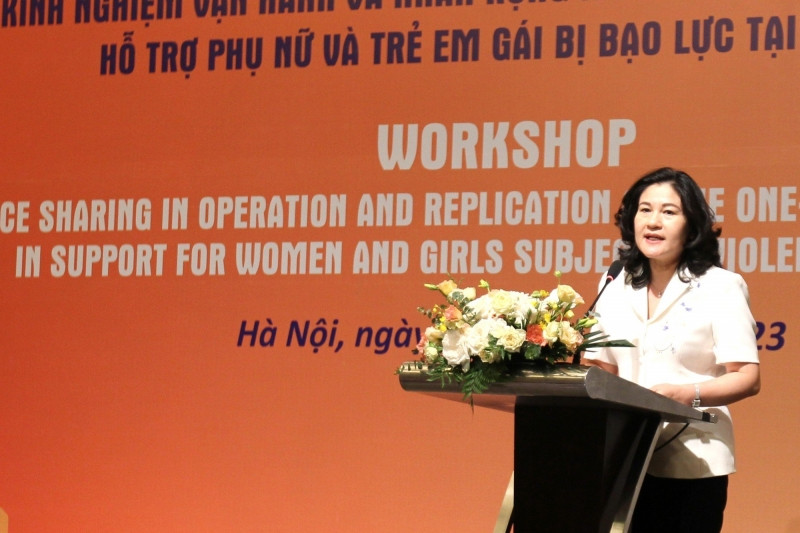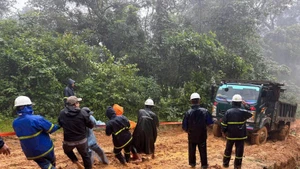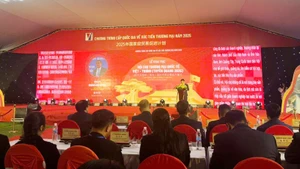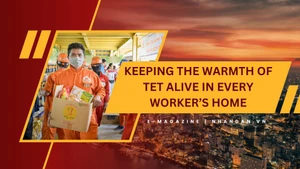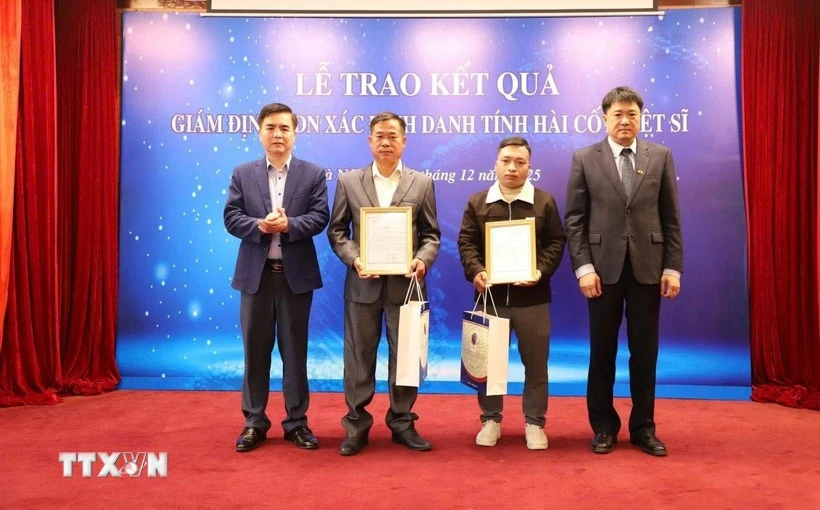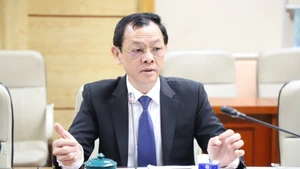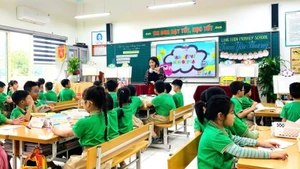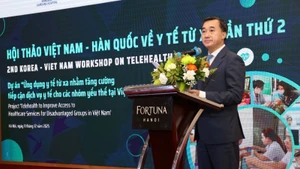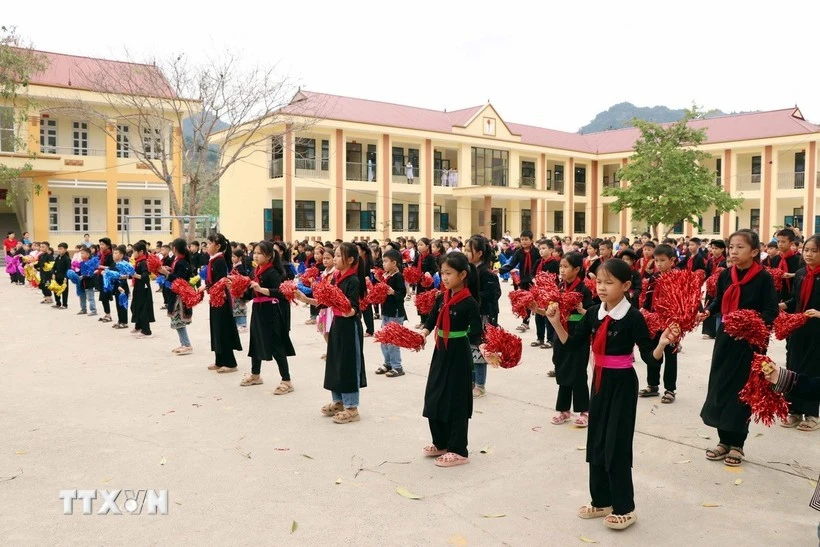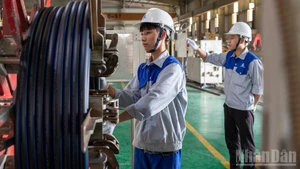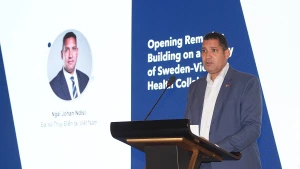The workshop was co-hosted by the Ministry of Labour, Invalids and Social Affairs (MoLISA), the United Nations Population Fund (UNFPA), and the Korea International Cooperation Agency (KOICA).
The One Stop Service Centre (OSSC) model supporting women and girls facing violence, known as Anh Duong Houses in Vietnam, provides comprehensive services to survivors of gender-based violence, including healthcare, psychological support, counselling, emergency shelters, social welfare services, legal support and referrals.
The first ever Anh Duong House was established in Quang Ninh in April 2020, through the KOICA-funded project “Building a model to respond to violence against women and girls in Vietnam,” from 2017 to 2021, with a total budget of USD 2.5 million.
In 2022, three more Anh Duong Houses were opened in Thanh Hoa Province, Da Nang City and Ho Chi Minh City, with financial support from the Government of Japan. The operational costs are thereafter covered through funding from the Government of Australia.
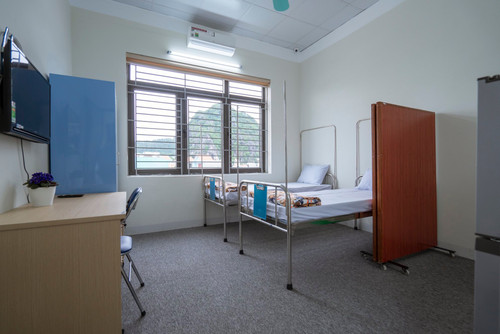 |
| The Anh Duong House provides essential, comprehensive, and integrated services to women and girls, who are experiencing and/or at risk of gender-based and domestic violence. (Photo: Anh Duong House in Quang Ninh) |
The four Anh Duong Houses in Quang Ninh, Thanh Hoa, Da Nang and Ho Chi Minh City have already assisted over 60 survivors of gender-based violence, at the houses and nearly 1,100 in the community. The hotline received over 20,000 calls, highlighting the urgent need for action.
The Anh Duong House provides essential, comprehensive, and integrated services to women and girls, who are experiencing and/or at risk of gender-based and domestic violence.
It provides a wide range of services, meeting international standards, including health care, psychological support, counselling, social welfare services, emergency shelters, police protection, legal and justice services, and referrals.
All services provided at the OSSC are based on the survivor-centred principle, in which survivors are treated with respect and dignity, and assured of privacy and confidentiality.
In her opening remarks, Deputy Minister of Labour, Invalid and Social Affairs Nguyen Thi Ha stressed, that over the past years, Vietnam has always been determined to apply any possible solutions to promote gender equality and to prevent and control gender-based violence against women and girls.
Vietnam has always been determined to apply any possible solutions to promote gender equality and to prevent and control gender-based violence against women and girls.
Deputy Minister of Labour, Invalid and Social Affairs Nguyen Thi Ha
She highly appreciated the effective operation of the OSSC model introduced by UNFPA, applauding those discussions on the replication of the UNFPA-supported One Stop Service Centre model to other localities, as a manifestation of the Government’s efforts to support gender-based violence survivors, by providing essential and integrated support services, taking gender-based violence survivor-centred approach, thus contributing to addressing gender-based violence in Vietnam. To achieve this goal, it is necessary to develop a multi-sectoral coordination mechanism, she added.
Naomi Kitahara, UNFPA Representative in Vietnam, called for the expansion and the replication of the Anh Duong House model to other provinces and cities in the country, to ensure that all women and girls in Vietnam, including the most vulnerable, have the right to live a life free of violence and with dignity.
Speaking at the workshop, Cho Han Deog, Country Director of KOICA Vietnam, stated that KOICA appreciates the effective operations of the OSSC model in Vietnam and thanked UNFPA for its technical and financial support, to ensure the availability and accessibility of the support services provided by Anh Duong Houses.
KOICA sees gender equality as an integrated component of its ODA programmes and projects, he emphasised.
He announced that since the model has been effectively contributing to bringing hope to gender-based violence victims, KOICA is willing to invest 5 million USD more to replicate the model in Ha Tinh and Khanh Hoa provinces, in the coming years.
For his part, UNFPA Representative for Vietnam, Naomi Kitahara, said that the introduction of the OSSC model aims to detect, prevent, and support survivors of violence.
She confirmed that despite the efficient operation of the four Anh Duong Houses, the demands are so high in terms of supporting gender-based violence survivors.
Therefore, she called for the expansion and replication of this safe and reliable facility, in other provinces and cities around the country.
UNFPA wants to ensure that all women and girls in Vietnam, including those most vulnerable, have the right to live a life free of violence and with dignity. “We are not leaving women and girls behind in the efforts of achieving SDGs by 2030,” she stated.
Participants in the workshop highlighted the need for policies, guidelines, and coordination mechanisms to replicate the model successfully in Vietnam. Such policies and guidelines also aim to further enhance the multi-sectoral coordination mechanisms among relevant departments and agencies, at both national and local levels.
They agreed that to ensure the long-term sustainability of the OSSC model, it is crucial to have regular budget allocations from the government and local authorities. They also stressed the need to mobilise financial, technical, and human resources from other organisations, individuals, and the private sector, in providing essential services to support gender-based violence survivors.
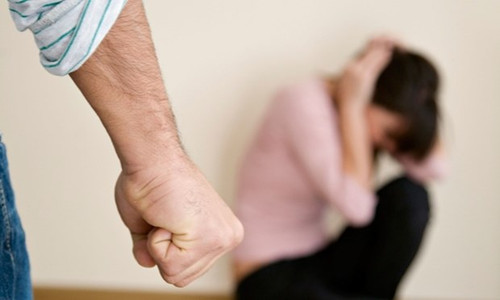 |
| Two in three women aged from 15 to 64 in Vietnam (almost 63%) have experienced one or more forms of physical, sexual, emotional and economic violence and controlling behaviours in their lifetime. |
According to the National Study on Violence Against Women conducted in Vietnam in 2019, two in three women aged from 15 to 64 (almost 63%) have experienced one or more forms of physical, sexual, emotional and economic violence and controlling behaviours in their lifetime.
Violence against women remains very much hidden. Half of the women who experienced violence by husbands had never told anyone. Almost all women (90.4 per cent) who experienced physical and/or sexual violence from husbands did not seek any help from formal service providers.
The report estimated that violence against women cost Vietnam an estimated 1.8 per cent of its Gross Domestic Product (GDP) in 2018.
